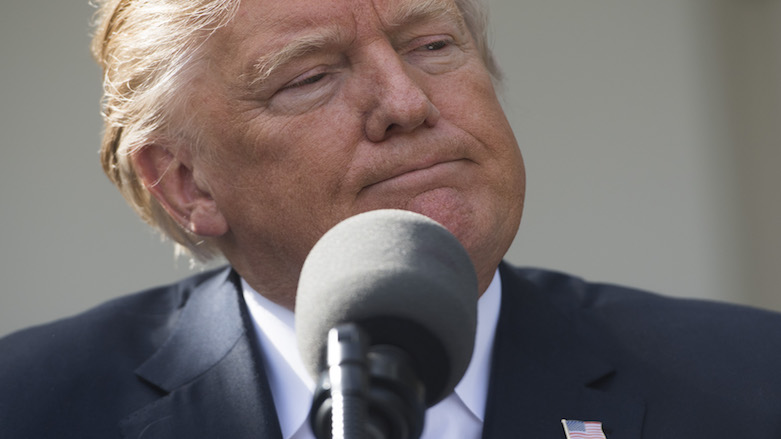Trump claims neutrality in Iraqi-Kurdish clash, but meets substantial criticism

WASHINGTON DC, United States (Kurdistan 24) – US President Donald Trump held a press conference in the White House Rose Garden on Monday, following a lunch with Senate Majority leader Mitch McConnell aimed at repairing the President’s tattered relations with Congressional Republicans.
During the press conference that followed their lunch—most of which dealt with domestic US issues—Trump was asked about Iraq’s assault on Kirkuk.
He replied, “We don’t like the fact that they’re clashing. We’re not taking sides, but we don’t like the fact that they’re clashing.”
“We’ve had for many years, very good relationships with the Kurds, as you know,” the President added. “And, we’ve also been on the side of Iraq, even though we should never have been there in the first place.”
On Monday, even before Trump spoke, Senators John McCain and Chuck Schumer, as well as Rep. Trent Franks, all issued statements critical of the administration’s limited response to Baghdad’s assault on Erbil.
McCain and Franks both stressed the role played by Iranian-backed militias in the Iraqi attack and urged the US to move quickly to stop the fighting and start a dialogue between the two sides.
John Hannah, National Security Adviser to former Vice-President Dick Cheney and currently senior counselor at the Foundation for the Defense of Democracies, told Kurdistan 24, “The US needs to understand that this is no longer a matter of Kurds and Arabs. This is now the Iranian Islamic Revolutionary Guard Corps [IRGC] against America; Qassem Soleimani against Donald Trump.”
“Whatever the administration thought about the wisdom of the [Kurds’] peaceful referendum on independence,” Hannah continued, “it would be a terrible blow to US interests to allow an Iranian terrorist group and its Iraqi proxies to respond by smashing a critical American ally with impunity.”
Michael Pregent, an Iraq expert at the Hudson Institute, who has close ties to the White House, agreed, tweeting, “Iran is testing President Trump's resolve by attacking US ally in Kirkuk less than 60 hours after US designation of IRGC.”
Pregent advised Kurdistan 24 that Trump was “relying on advocates of a ‘one-Iraq policy’” and oblivious to the fundamental contradiction between that position, given Iran’s strong influence in Baghdad now, and the administration’s tough, new policy toward Iran.
Ali Khedhery, who served as an advisor to senior US officials in Iraq from 2003 to 2009, similarly emphasized Iran’s role in attacking Kirkuk, as he tweeted, “another video emerges of KH’s Muhandis (US embassy bomber) and Badr’s Ameri, flanked by deferential Iraqi generals. A great day for IRGC.”
And, Richard Haas, head of the prestigious Council on Foreign Relations, tweeted that a “muscular” policy against Tehran would “include helping Kurds resisting Iran-backed governments in Iraq, Syria.”
“The President needs to understand: this is the IRGC’s answer to his speech last Friday,” Hannah concluded. “This is Qassem Soleimani trying to kill the Trump administration’s new Iran strategy before it even gets off the ground.”
Editing by Karzan Sulaivany
